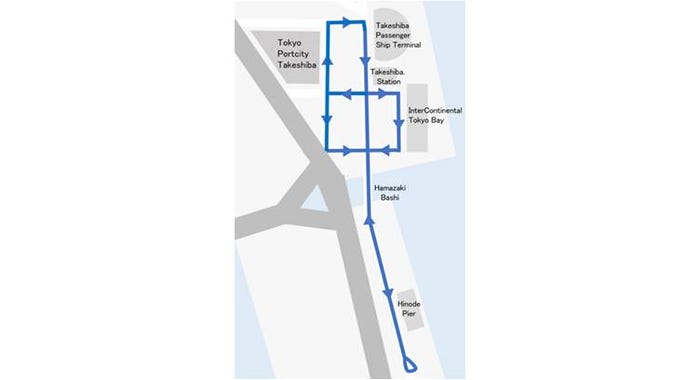Softbank Starts Testing Driverless Cars
Collaboration includes Michigan self-driving company May Mobility

Japanese tech giant Softbank has confirmed it started trials of autonomous vehicles (AVs) in Tokyo.
The company is working in tandem with Michigan-based self-driving company May Mobility, a collaboration announced in June last year.
Softbank’s field tests got under way in January and are taking place in the Takeshiba area of Minato-ku in Tokyo, with the route covering a number of busy locations including the InterContinental Tokyo Bay Hotel, Takeshiba Station and Takeshiba passenger ship terminal.
The field tests are designed to cover specific requirements of legislation that goes live in April to allow driverless vehicles on Japanese roads.

Among these is human monitoring of AVs, which will be mandatory, whether the supervision is provided from within the vehicle or remotely. Softbank says it is developing an AI-powered remote monitoring system that can automatically edit information for a human to respond to and has been conducting verification tests of it.
The company is also testing the use of sensing tech inside AVs to enable them to be able to detect when a passenger falls ill or suffers an emergency. In driverless Mobility as a Service vehicles, such as taxis or shuttle buses, Softbank is investigating how a remote human monitor could be alerted and provide voice guidance to cope with the situation.
While these specific areas are being assessed and verified, more generally Softbank says it is using simulations via a digital twin to constantly analyze all the data provided from the field tests – including hazardous areas, heavy traffic and pedestrian flow – for the automatic calculation of optimal driving routes.
And it is also aggregating all the data amassed on test to feed back to the May Mobility Automated Driving System that is being used. The Ann Arbor company uses a suite of tech including lidar sensors, radar and cameras to create 360-degree visibility around the AVs.
Development work of AVs is intensifying in Japan as the clock ticks down until the enactment of the country’s amended Road Traffic Act in April, which will allow vehicles with Level 4 autonomous capability to operate on the country’s roads.
Level 4 is classified by the Society of Automotive Engineers as when a vehicle assumes full control of the driving in a specific location.
The arrival of driverless vehicles is keenly anticipated in Japan, where it is hoped it will help to address a driver shortage and also provide a way for elderly people to get out in lowly populated areas.
Read more about:
APAC NewsAbout the Author
You May Also Like








